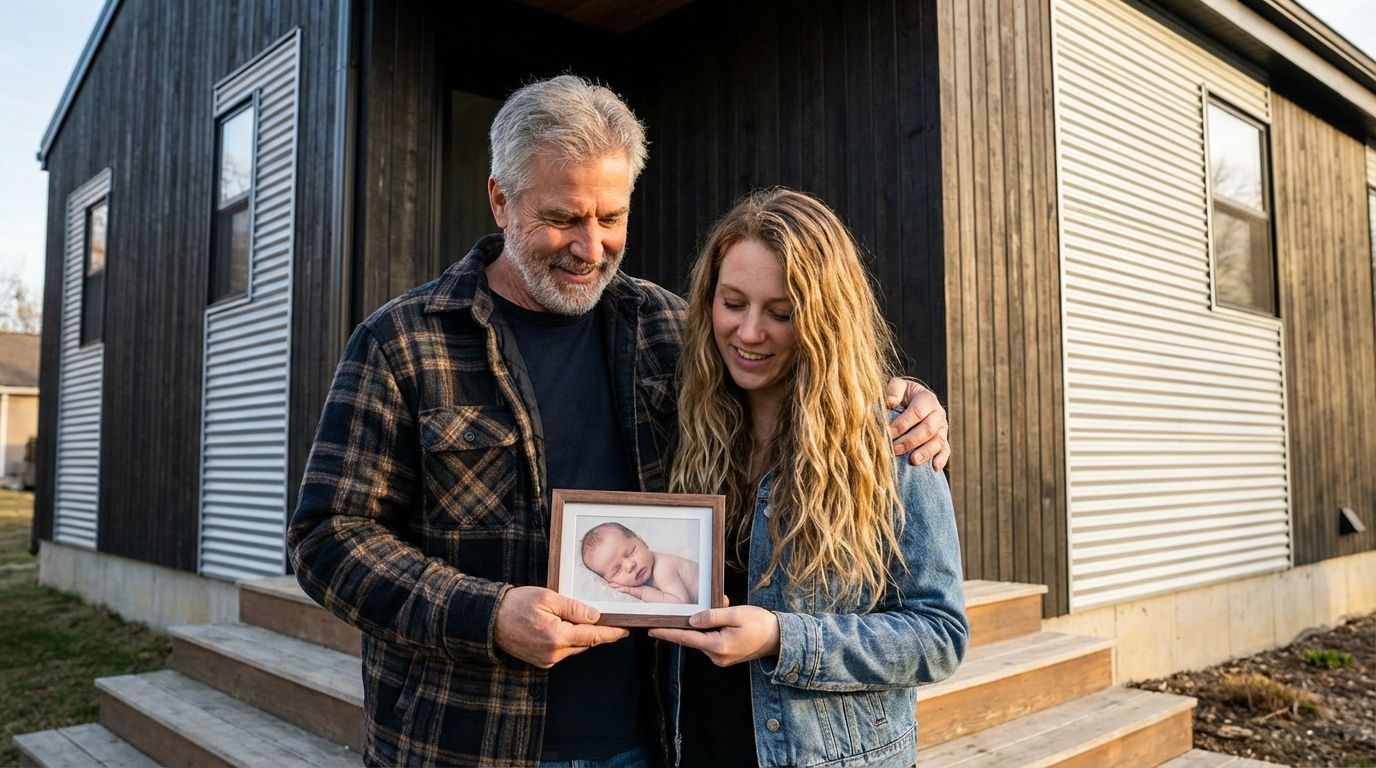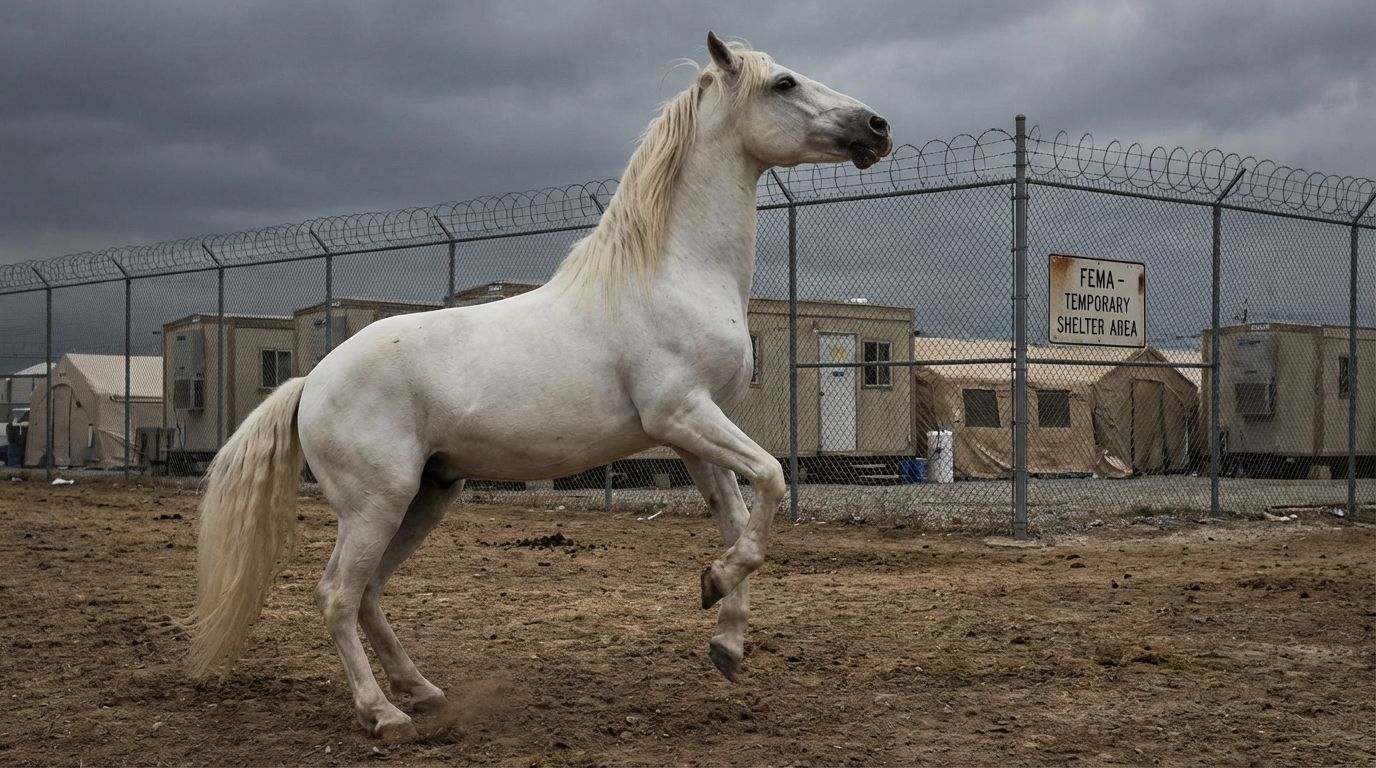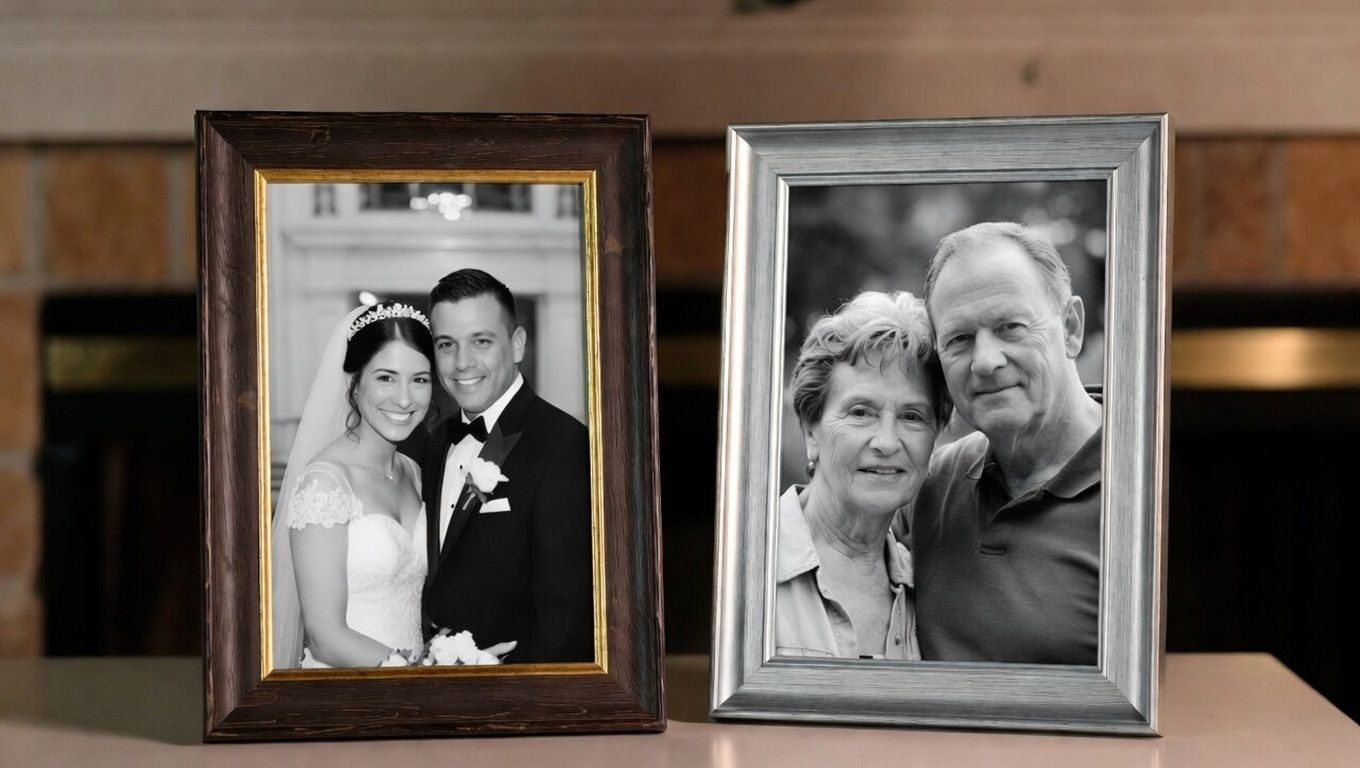George's Rules
George's top 10 Rules for Civility
At the age of 14, young George Washington wrote a book entitled "110 Rules of Civility." How many 14 year-olds could do that today? In any case, I learned about this recently and put today's tech to work. This is the result.
Rat Pack Version: Imagine a smoke-filled casino theater in about 1957 ....

Hip-Hop Version: Imagine a youtube video produced on the streets of LA

Country Version: Imagine an up-and-coming band on the Nashville stage of the Grand Ol' Opry

George's Rules
Lyrics
(Spoken Intro - Male, slow and reflective, like sittin' on a porch swing)
Well, folks, back in the day, ol' George Washington laid down some rules for livin' right. Simple stuff, but it sticks with ya. Let's sing about 'em now...
(Verse 1 - Male)
In the heart of the country, where the rivers run free,
George taught us respect, for you and for me.
Bow to the elders, treat everyone kind,
With dignity shinin', leavin' no one behind.
(Female)
Be polite in your talkin', let your manners ring true,
A "please" and a "thank you" shows the good in you.
(Chorus - Duet, building harmony)
Oh, George's rules, they're as timeless as the hills,
Guidin' us through the storms, payin' all the bills.
Live with honor, stand tall like an oak tree,
Follow these ways, and happy we'll be.
George's rules, from the soul of the land,
Buildin' a better world, hand in hand.
(Verse 2 - Female)
Listen up close when folks are sharin' their tales,
Don't interrupt 'em, let their stories set sail.
Be honest and true, no lies in your game,
Sincerity's the fire that lights up your name.
(Male)
Steer clear of the gossip, don't whisper 'round town,
It tears folks apart, brings the good ones down.
(Chorus - Duet)
Oh, George's rules, they're as timeless as the hills,
Guidin' us through the storms, payin' all the bills.
Live with honor, stand tall like an oak tree,
Follow these ways, and happy we'll be.
George's rules, from the soul of the land,
Buildin' a better world, hand in hand.
(Spoken Bridge - Female, soft and earnest, with light guitar strums)
Y'know, darlin', sometimes life gets a little rough... But George said to be gracious, take the gifts with a smile. Don't brush 'em off. And keep your cool when the thunder rolls in.
(Verse 3 - Male)
Control your temper, stay steady and strong,
Composed in the chaos, where you belong.
Be humble, no braggin', let your deeds do the talk,
Actions speak louder than any ol' squawk.
(Female)
Keep yourself clean, from your boots to your hat,
It shows self-respect, and we all need that.
(Bridge - Duet, with building intensity)
Be mindful of doin', think 'fore you move,
Your steps leave a trail in the lives that you groove.
(Spoken Outro - Male and Female alternating, fading out)
(Male) So remember George's wisdom, every sunrise...
(Female) In how we treat others, that's where the prize lies.
(Both) Yeah, these rules ain't just old... they're gold.
(Final Chorus Fade - Duet, soft and lingering)
Oh, George's rules... timeless as the hills...
Buildin' a better world... hand in hand...
George's top 10 Rules of Civility - Modernized
Respect Others: Always show respect to those in higher positions and treat everyone with dignity.
Be Polite: Use polite language and manners in conversations; it shows you care.
Listen Actively: Pay attention when others are speaking; it’s rude to interrupt.
Be Honest: Always tell the truth and be sincere in your interactions.
Avoid Gossip: Don’t talk behind people’s backs; it creates distrust.
Be Gracious: Accept compliments and gifts graciously; don’t downplay them.
Control Your Emotions: Stay calm and composed, even in difficult situations.
Be Humble: Don’t brag about your achievements; let your actions speak for themselves.
Practice Good Hygiene: Take care of your appearance; it reflects your respect for yourself and others.
Be Mindful of Your Actions: Think before you act; your behavior can impact others.
George's Full List - Modernized
Respect your elders and those in charge.
Be polite and use good manners.
Listen when someone is talking; don’t interrupt.
Always tell the truth.
Don’t spread rumors or gossip.
Say thank you and accept compliments nicely.
Stay calm, even when things get tough.
Don’t brag; let your actions show what you can do.
Keep yourself clean and presentable.
Think before you act; your choices matter.
Don’t be rude or disrespectful.
Be friendly and approachable.
Don’t show off your wealth or possessions.
Help others when you can.
Be open to new ideas and opinions.
Don’t be a know-it-all; be willing to learn.
Keep your promises.
Be punctual; respect others’ time.
Don’t complain too much.
Be supportive of your friends.
Avoid being overly critical.
Be generous with your time and resources.
Don’t take things too personally.
Be mindful of your body language.
Don’t interrupt conversations.
Be careful with your words; they can hurt.
Stay humble and grounded.
Be a good sport, whether you win or lose.
Don’t be afraid to apologize.
Be respectful in disagreements.
Don’t be overly dramatic.
Be kind to everyone, even strangers.
Don’t judge others too quickly.
Be patient with people.
Don’t be a show-off.
Be grateful for what you have.
Don’t be a bully.
Be a good listener.
Don’t take credit for others’ work.
Be respectful of different cultures.
Don’t be afraid to ask for help.
Be honest about your feelings.
Don’t be a drama queen or king.
Be supportive of your friends’ dreams.
Don’t be a know-it-all.
Be open to feedback.
Don’t be too serious; have fun!
Be respectful of personal space.
Don’t be a downer; stay positive.
Be mindful of your tone of voice.
Don’t be afraid to stand up for what’s right.
Be respectful of others’ opinions.
Don’t be a slacker; put in effort.
Be willing to compromise.
Don’t be a drama starter.
Be respectful of authority figures.
Don’t be a know-it-all; share the spotlight.
Be kind to animals.
Don’t be a backstabber.
Be respectful of the environment.
Don’t be a quitter; stick with it.
Be open to new experiences.
Don’t be a hater; spread love.
Be respectful of others’ time.
Don’t be a procrastinator; get things done.
Be willing to learn from mistakes.
Don’t be a drama magnet.
Be respectful of your own boundaries.
Don’t be a know-it-all; listen to others.
Be supportive of your community.
Don’t be a negative influence.
Be respectful of your own feelings.
Don’t be a gossip; keep it real.
Be open to change.
Don’t be a drama queen; keep it cool.
Be respectful of your own needs.
Don’t be a know-it-all; share the love.
Be kind to yourself.
Don’t be a bully; lift others up.
Be respectful of your own time.
Don’t be a drama starter; keep it chill.
Be open to constructive criticism.
Don’t be a slacker; hustle hard.
Be respectful of your own space.
Don’t be a know-it-all; learn from others.
Be supportive of your friends’ choices.
Don’t be a downer; stay upbeat.
Be respectful of your own opinions.
Don’t be a drama magnet; keep it low-key.
Be open to new friendships.
Don’t be a procrastinator; take action.
Be respectful of your own boundaries.
Don’t be a know-it-all; share the knowledge.
Be kind to your family.
Don’t be a bully; be a friend.
Be respectful of your own feelings.
Don’t be a drama queen; keep it real.
Be open to new ideas.
Don’t be a slacker; put in the work.
Be respectful of your own time.
Don’t be a know-it-all; listen and learn.
Be supportive of your peers.
Don’t be a downer; spread positivity.
Be respectful of your own needs.
Don’t be a drama starter; keep it cool.
Be open to feedback.
Don’t be a procrastinator; get it done.
Be respectful of your own space.
Don’t be a know-it-all; share the wisdom.
Be kind to everyone, including yourself.
---------
George's Expanded Rules with Examples
Respect your elders and those in charge.
Example: When your teacher is explaining something in class, show respect by listening attentively and not talking over them. It’s like giving them the floor to share their knowledge.
Be polite and use good manners.
Example: Saying "please" and "thank you" when asking for a favor or receiving help shows that you appreciate others' efforts, whether it’s a friend or a cashier.
Listen when someone is talking; don’t interrupt.
Example: If your friend is sharing a story, wait until they finish before jumping in with your thoughts. It shows you value what they have to say.
Always tell the truth.
Example: If you accidentally break something at a friend's house, owning up to it instead of making excuses builds trust and shows integrity.
Don’t spread rumors or gossip.
Example: If you hear something juicy about someone, think twice before sharing it. Instead, focus on positive conversations that uplift others.
Say thank you and accept compliments nicely.
Example: If someone compliments your outfit, respond with a genuine "thank you!" instead of brushing it off. It makes both you and the other person feel good.
Stay calm, even when things get tough.
Example: During a heated group project, instead of losing your cool, take a deep breath and suggest a break to regroup. It helps maintain a positive atmosphere.
Don’t brag; let your actions show what you can do.
Example: Instead of boasting about your achievements on social media, let your hard work speak for itself through your grades or sports performance.
Keep yourself clean and presentable.
Example: Taking a shower and wearing clean clothes to school shows respect for yourself and your classmates, making a good impression.
Think before you act; your choices matter.
Example: Before posting something online, consider how it might affect your reputation or how others might perceive you. It’s about being mindful of your digital footprint.
Don’t be rude or disrespectful.
Example: If someone disagrees with you, instead of rolling your eyes or making snarky comments, engage in a respectful discussion about your differing views.
Be friendly and approachable.
Example: Smile and say hi to classmates in the hallway. It creates a welcoming environment and can brighten someone’s day.
Don’t show off your wealth or possessions.
Example: If you have the latest phone, it’s cool to enjoy it, but flaunting it in front of others can make them feel bad. Share your excitement without making others feel less.
Help others when you can.
Example: If you see a classmate struggling with homework, offer to help them out. It fosters a sense of community and support.
Be open to new ideas and opinions.
Example: In a debate club, listen to opposing viewpoints without dismissing them. It helps you grow and understand different perspectives.
Don’t be a know-it-all; be willing to learn.
Example: If a friend teaches you a new game, instead of acting like you already know everything, be open to their tips and enjoy the learning process.
Keep your promises.
Example: If you tell a friend you’ll help them study, make sure to follow through. It builds trust and reliability in your friendships.
Be punctual; respect others’ time.
Example: Arriving on time for a group meeting shows that you value everyone’s time and are committed to the project.
Don’t complain too much.
Example: Instead of whining about a tough assignment, focus on how you can tackle it step by step. Positivity can be contagious!
Be supportive of your friends.
Example: If a friend is nervous about a performance, encourage them and remind them of their strengths. Your support can boost their confidence.
Avoid being overly critical.
Example: When giving feedback on a friend's project, focus on what they did well before suggesting improvements. It helps them feel appreciated.
Be generous with your time and resources.
Example: If you have extra supplies for a school project, share them with classmates who might need them. It fosters teamwork and camaraderie.
Don’t take things too personally.
Example: If someone makes a joke that doesn’t sit well with you, try to brush it off and not let it ruin your day. Everyone has different senses of humor.
Be mindful of your body language.
Example: When talking to someone, maintain eye contact and avoid crossing your arms. It shows you’re engaged and open to the conversation.
Don’t interrupt conversations.
Example: If you’re in a group discussion, wait for your turn to speak instead of cutting someone off. It shows respect for their thoughts.
Be careful with your words; they can hurt.
Example: Before saying something that might be taken the wrong way, think about how it could affect the other person’s feelings.
Stay humble and grounded.
Example: If you win an award, celebrate your achievement but also acknowledge the support of your friends and family who helped you along the way.
Be a good sport, whether you win or lose.
Example: If your team loses a game, congratulate the winning team and focus on what you can improve for next time instead of sulking.
Don’t be afraid to apologize.
Example: If you accidentally hurt someone’s feelings, a sincere apology can go a long way in mending the relationship.
Be respectful in disagreements.
Example: If you and a friend have different opinions on a movie, discuss your views without resorting to insults or anger.
Don’t be overly dramatic.
Example: If something minor goes wrong, like forgetting your homework, try to handle it calmly instead of making a huge fuss.
Be kind to everyone, even strangers.
Example: Holding the door open for someone or offering a smile can make a stranger’s day a little brighter.
Don’t judge others too quickly.
Example: If someone dresses differently or acts uniquely, try to understand their perspective instead of making snap judgments.
Be patient with people.
Example: If a friend is struggling to understand a concept, take the time to explain it without getting frustrated.
Don’t be a show-off.
Example: Instead of bragging about your achievements, let your hard work speak for itself. Humility is often more impressive.
Be grateful for what you have.
Example: Instead of focusing on what you don’t have, take a moment to appreciate the things you do, like supportive friends and family.
Don’t be a bully.
Example: Stand up against bullying when you see it, whether it’s online or in person. Being an ally makes a difference.
Be a good listener.
Example: When a friend is sharing their problems, put your phone down and give them your full attention. It shows you care.
Don’t take credit for others’ work.
Example: If you worked on a group project, make sure to acknowledge everyone’s contributions when presenting it.
Be respectful of different cultures.
Example: If a classmate shares their cultural traditions, show interest and ask questions instead of making assumptions.
Don’t be afraid to ask for help.
Example: If you’re struggling with a subject in school, reaching out to a teacher or a friend for help shows strength, not weakness.
Be honest about your feelings.
Example: If you’re feeling overwhelmed, it’s okay to tell your friends or family instead of pretending everything is fine.
Don’t be a drama queen or king.
Example: If something doesn’t go your way, try to handle it maturely instead of blowing it out of proportion.
Be supportive of your friends’ dreams.
Example: If a friend wants to pursue a career in art, encourage them to follow their passion and offer to help them with their portfolio.
Don’t be a know-it-all.
Example: If someone asks a question you know the answer to, share it without making them feel inferior for not knowing.
Be open to feedback.
Example: If a teacher gives you constructive criticism on an assignment, take it as an opportunity to improve rather than getting defensive.
Don’t be too serious; have fun!
Example: While studying for exams is important, taking breaks to play games or hang out with friends can help relieve stress.
Be respectful of personal space.
Example: If someone steps back when you’re talking to them, take the hint and give them some space. Everyone has different comfort levels.
Don’t be a downer; stay positive.
Example: If your friends are excited about a plan, try to contribute positively instead of focusing on what could go wrong.
Be mindful of your tone of voice.
Example: If you’re upset, try to communicate calmly instead of raising your voice, which can escalate the situation.
Don’t be afraid to stand up for what’s right.
Example: If you see someone being treated unfairly, speak up or report it. Standing up for others shows courage and integrity.
Be respectful of others’ opinions.
Example: In a discussion, even if you disagree, acknowledge the other person’s viewpoint before sharing your own.
Don’t be a slacker; put in effort.
Example: Completing your assignments on time and putting in your best effort shows responsibility and dedication.
Be willing to compromise.
Example: If you and a friend can’t agree on a movie to watch, suggest finding a film that you both can enjoy together.
Don’t be a drama starter.
Example: If you hear gossip, don’t spread it further. Instead, focus on positive conversations that bring people together.
Be respectful of authority figures.
Example: If a coach gives you feedback during practice, listen and apply it instead of arguing back. They’re there to help you improve.
Don’t be a know-it-all; share the spotlight.
Example: If you excel in a group project, make sure to highlight your teammates’ contributions during the presentation.
Be kind to animals.
Example: If you see a stray dog, consider helping it find shelter or food. Kindness extends to all living beings.
Don’t be a backstabber.
Example: If a friend confides in you, keep their trust by not sharing their secrets with others.
Be respectful of the environment.
Example: Participate in clean-up days at your school or community to show you care about keeping your surroundings clean.
Don’t be a quitter; stick with it.
Example: If you’re struggling with a sport or subject, keep practicing and seeking help instead of giving up.
Be open to new experiences.
Example: If a friend invites you to try a new activity, like rock climbing or painting, give it a shot! You might discover a new passion.
Don’t be a hater; spread love.
Example: Instead of criticizing someone’s style, compliment them on their uniqueness. Positivity can create a ripple effect.
Be respectful of others’ time.
Example: If you’re meeting a friend, try to arrive on time to show that you value their schedule.
Don’t be a procrastinator; get things done.
Example: Instead of waiting until the last minute to study for a test, create a study schedule to manage your time effectively.
Be willing to learn from mistakes.
Example: If you mess up on a project, reflect on what went wrong and how you can improve next time instead of dwelling on the failure.
Don’t be a drama magnet.
Example: If you find yourself in the middle of unnecessary conflicts, try to step back and avoid engaging in the drama.
Be respectful of your own boundaries.
Example: If you need time alone to recharge, communicate that to your friends instead of feeling pressured to always hang out.
Don’t be a know-it-all; listen to others.
Example: In a group discussion, encourage quieter members to share their thoughts. Everyone’s perspective is valuable.
Be supportive of your community.
Example: Volunteer at local events or help out at a community center. It strengthens your connection to where you live.
Don’t be a negative influence.
Example: If your friends are considering skipping class, encourage them to stay on track instead of joining in on the bad decision.
Be respectful of your own feelings.
Example: If you’re feeling overwhelmed, it’s okay to take a break and focus on self-care instead of pushing through.
Don’t be a gossip; keep it real.
Example: If someone shares something personal with you, keep it confidential and avoid spreading it around.
Be open to change.
Example: If your school introduces a new schedule, try to adapt and find ways to make the most of it instead of resisting.
Don’t be a drama queen; keep it cool.
Example: If you face a setback, like losing a game, take a moment to breathe and reflect instead of overreacting.
Be respectful of your own needs.
Example: If you’re feeling burnt out, prioritize your mental health by taking a day off to recharge.
Don’t be a know-it-all; share the love.
Example: If you excel in a subject, offer to tutor classmates who might be struggling instead of keeping all the knowledge to yourself.
Be kind to yourself.
Example: If you make a mistake, practice self-compassion instead of being overly critical. Everyone makes errors!
Don’t be a bully; lift others up.
Example: If you see someone being teased, stand up for them or invite them to join your group. Kindness can change someone’s day.
Be respectful of your own time.
Example: Set boundaries for how much time you spend on social media to ensure you have time for other important activities.
Don’t be a drama starter; keep it chill.
Example: If you hear a rumor, don’t spread it. Instead, focus on positive interactions that foster friendship.
Be open to constructive criticism.
Example: If a coach gives you feedback on your performance, take it as a chance to improve rather than feeling offended.
Don’t be a slacker; hustle hard.
Example: If you have a goal, like getting into a good college, put in the effort now instead of waiting until the last minute.
Be respectful of your own space.
Example: If you need time alone to study, communicate that to your friends so they understand your need for personal space.
Don’t be a know-it-all; learn from others.
Example: If a classmate has a different approach to solving a problem, be open to their method and see if it works for you.
Be supportive of your friends’ choices.
Example: If a friend decides to pursue a different career path, encourage them and offer your support, even if it’s not what you expected.
Don’t be a downer; stay upbeat.
Example: If your friends are excited about a new movie, share in their enthusiasm instead of focusing on the negatives.
Be respectful of your own opinions.
Example: If you have a strong opinion on a topic, express it confidently but also be open to hearing others’ viewpoints.
Don’t be a drama magnet; keep it low-key.
Example: If you notice a situation escalating, try to diffuse it by suggesting a fun activity to shift the focus.
Be open to new friendships.
Example: If a new student joins your class, reach out and introduce yourself. You never know who might become a great friend!
Don’t be a procrastinator; take action.
Example: If you have a project due next week, start working on it today instead of waiting until the night before.
Be respectful of your own boundaries.
Example: If you’re feeling overwhelmed with commitments, it’s okay to say no to new responsibilities.
Don’t be a know-it-all; share the knowledge.
Example: If you learn something new, share it with your friends instead of keeping it to yourself. Knowledge is better when shared!
Be kind to your family.
Example: Help out with chores at home without being asked. It shows appreciation for all they do for you.
Don’t be a bully; be a friend.
Example: If you see someone sitting alone at lunch, invite them to join your group. It can make a big difference in their day.
Be respectful of your own feelings.
Example: If you’re feeling anxious about an upcoming event, talk to someone you trust about it instead of bottling it up.
Don’t be a drama queen; keep it real.
Example: If you face a minor setback, like a bad grade, try to approach it calmly and figure out how to improve next time.
Be open to new ideas.
Example: If a friend suggests trying a new restaurant, be willing to step out of your comfort zone and give it a shot.
Don’t be a slacker; put in the work.
Example: If you want to improve in a sport, practice regularly instead of just showing up for games.
Be respectful of your own time.
Example: Set aside time for studying and stick to it, even if friends invite you out. Prioritizing your goals is important!
Don’t be a know-it-all; listen and learn.
Example: If a teacher shares a new perspective, take the time to consider it instead of dismissing it because you think you know better.
Be supportive of your peers.
Example: If a classmate is nervous about a presentation, offer to help them practice. Your support can boost their confidence.
Don’t be a downer; spread positivity.
Example: If someone shares good news, celebrate with them instead of downplaying their achievement.
Be respectful of your own needs.
Example: If you need a break from socializing, communicate that to your friends instead of feeling guilty about it.
Don’t be a drama starter; keep it cool.
Example: If you hear a rumor, don’t engage in it. Instead, focus on building positive relationships with those around you.
Be open to feedback.
Example: If a coach critiques your performance, take it as a chance to improve rather than feeling discouraged.
Don’t be a procrastinator; get it done.
Example: If you have a big assignment, break it into smaller tasks and tackle them one at a time instead of waiting until the last minute.
Be respectful of your own space.
Example: If you need time to recharge after a busy week, let your friends know you’ll be taking a break.
Don’t be a know-it-all; share the wisdom.
Example: If you’ve learned a valuable lesson from an experience, share it with others to help them avoid similar mistakes.
Be kind to everyone, including yourself.
Example: Treat yourself with the same kindness you show to others. If you make a mistake, practice self-compassion instead of being





























